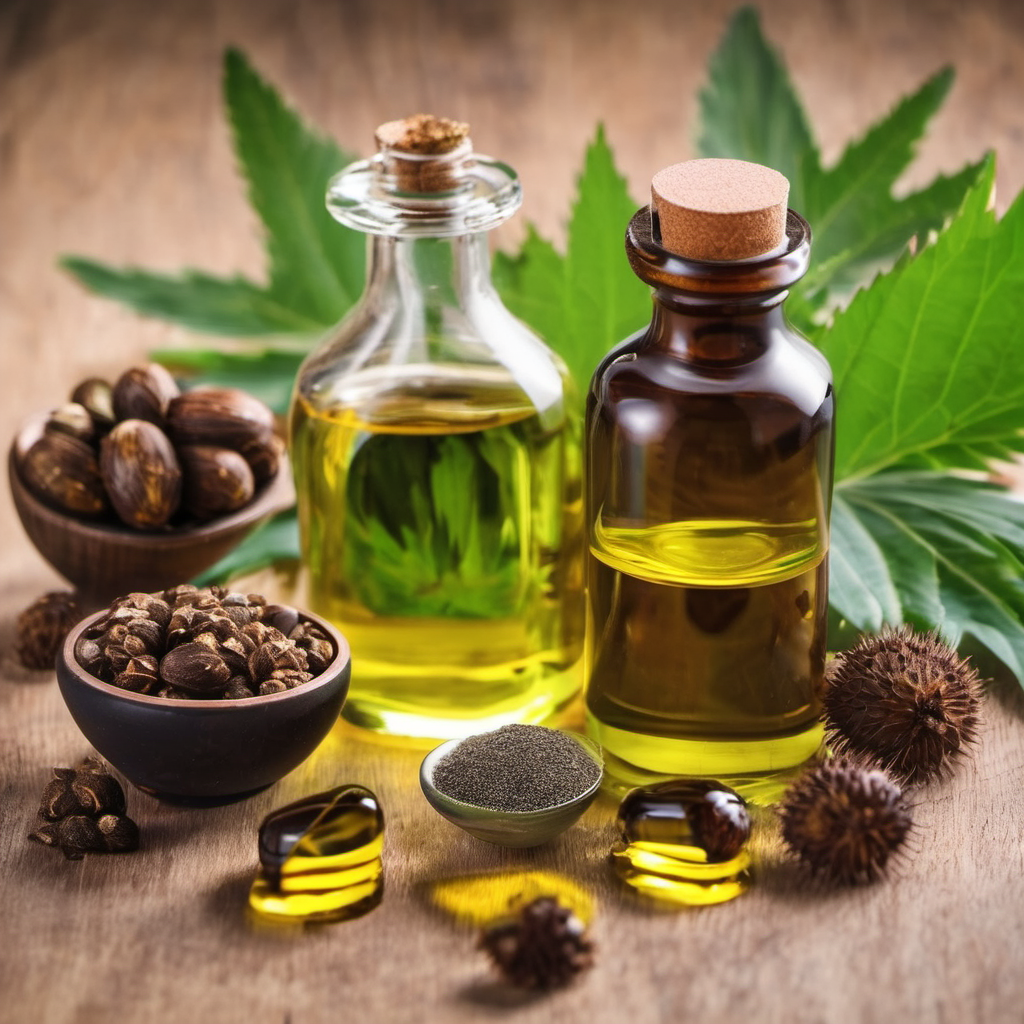The Ultimate Comparison: Jamaican Black Castor Oil vs. Regular Castor Oil

INTRODUCTION
Welcome to our comprehensive guide on the ultimate comparison between Jamaican Black Castor Oil and Regular Castor Oil. Whether you’re an avid beauty enthusiast or simply someone looking to enhance your hair and skin care routine, this blog is tailored for you. we are excited to delve into the world of these two popular oils and shed light on their unique properties, benefits, and applications. Join us as we explore the differences and similarities between Jamaican Black Castor Oil and Regular Castor Oil, providing you with the knowledge you need to make an informed decision for your personal care needs. So, let’s get started on this enlightening journey together!
The Growing Popularity of Castor Oil
Castor oil has become increasingly popular due to its wide array of beauty and health benefits. While it has been a staple in beauty routines since ancient times, it has recently experienced a resurgence in popularity as consumers have turned back to natural solutions amidst the dominance of chemical alternatives in the cosmetic industry. Today, there is a growing recognition of the value of natural castor oil products, prompting a shift in consumer preferences.
The Diverse Forms of Castor Oil
Derived from the seeds of the castor plant (Ricinus communis), castor oil is a versatile oil that has found applications across various industries, including beauty and cosmetics, food and agriculture, pharmaceuticals, lubricants, coatings, and paints. Its appeal lies in its natural, renewable, sustainable, and biodegradable properties.
Castor oil’s adaptability allows for the creation of numerous derivatives that serve as essential ingredients across various industries. Variants such as hydrogenated castor oil, low-moisture castor oil, Jamaican black castor oil, and cold-pressed castor oil have contributed to its widespread popularity among natural oils.
While all variants of castor oil share similarities in their ultimate source and benefits, each exhibits distinct properties, uses, and appearances. In this discussion, we will explore the two primary castor oil variants: Jamaican Black Castor Oil (JBCO) and Regular Castor Oil.
Contrasting Jamaican Black Castor Oil and Regular Castor Oil
JBCO, derived from the castor plant (Ricinus communis), undergoes a unique processing method that results in its characteristic black color. Primarily utilized for hair and beauty treatments, it offers distinct advantages in these applications.
On the other hand, regular castor oil, also sourced from the Ricinus communis plant, has been a household staple for generations and is readily available in grocery stores. This classic form of castor oil has served diverse purposes over the years.
Scent and Texture
Jamaican Black Castor Oil features a distinct nutty aroma and a thicker consistency as compared to Regular Castor Oil, which typically offers a lighter scent and texture. When choosing between the two, personal preferences and the intended use of the oil are influential factors to consider.
Chemical Composition
Regular castor oil primarily consists of ricinoleic acid, a monounsaturated fatty acid known for its potential to enhance hair growth and reduce hair loss, comprising an estimated 85–95% of the oil. Additionally, it contains other beneficial fatty acids such as oleic acid, linoleic acid, and stearic acid, working together to provide extra benefits to hair and skin. Furthermore, the oil is enriched with minerals and vitamins from castor plant seeds, making it one of the most advantageous oils available.
Jamaican black castor oil possesses a similar composition to regular castor oil, but its distinct production process and roasting impart it with a unique composition. It also contains a high concentration of fatty acids, particularly ricinoleic acid, which has been associated with numerous benefits for hair and skin. In addition to oleic acid, linoleic acid, and stearic acid, Jamaican Black Castor Oil is rich in
Cost and Availability
Considered a specialty product, Jamaican black castor oil may be marginally more expensive than regular castor oil. However, pricing and availability can vary based on location and preferred shopping platforms, such as health stores, beauty supply shops, and online marketplaces.
Manufacturing Process
The production of regular castor oil entails cold pressing, where the seeds are mechanically pressed without undergoing roasting or exposure to high temperatures. This method helps preserve the oil’s natural properties and nutrients, resulting in a minimally processed form of castor oil compared to Jamaican black castor oil.
Renowned for its distinctive production, Jamaican black castor oil is crafted using a specific method. The process involves roasting or toasting the castor beans before extraction, leading to the oil’s darker hue and enhanced nutty aroma. The roasted beans are then crushed into a paste or powder to extract the oil, which is subsequently filtered to eliminate impurities and solid particles, with additional clarification procedures if necessary.
Following filtration and clarification, Jamaican black castor oil is prepared for distribution and use, typically available in bottles or containers.
Benefits and Uses
Regular castor oil is renowned for its efficacy as a remedy for constipation. Its laxative properties can effectively stimulate bowel movements without exerting pressure, providing relief for constipation when consumed moderately.
Furthermore, regular castor oil’s anti-inflammatory properties make it a natural and effective remedy for pain relief. Its topical application to sore muscles or joints has been proven to reduce inflammation and alleviate discomfort promptly.
In addition to its medicinal uses, regular castor oil is a popular component of beauty regimens. Regular application to eyelashes and eyebrows can nourish hair follicles and promote thicker and longer growth.
Conversely, Jamaican black castor oil is celebrated for its ability to stimulate hair growth and maintain a healthy scalp. Enriched with omega-9 fatty acids and vitamin E, it nourishes hair follicles, strengthens strands, and reduces breakage. Massaging Jamaican black castor oil onto the scalp can also enhance blood circulation, promoting healthier hair growth.
Expanding beyond hair and skin benefits, Jamaican black castor oil is also highly advantageous for nails and cuticles. A few drops are sufficient to nourish nails and make them less prone to damage. Additionally, it can soften and hydrate cuticles, enhancing their maintenance and appearance.
Effectiveness
Both oils contain ricinoleic acid, the main active component responsible for their effectiveness. Fortunately, the production method and alkalinity differences do not significantly affect the ricinoleic acid content, rendering both oils equally effective. Individual results may vary based on factors such as overall health, genetics, and proper usage.
Conclusion
Jamaican black castor oil and regular castor oil offer unique benefits and uses. Therefore, it is essential to have a deep understanding of both oils before making a selection for your hair and skin needs. Consider your specific requirements and preferences when choosing. Obtain these oils from a reliable source like RUNZOER INDIA to ensure you receive unadulterated, 100% pure natural castor oil.
Embrace the natural power of castor oil and unlock its potential in your beauty and health regimen.
